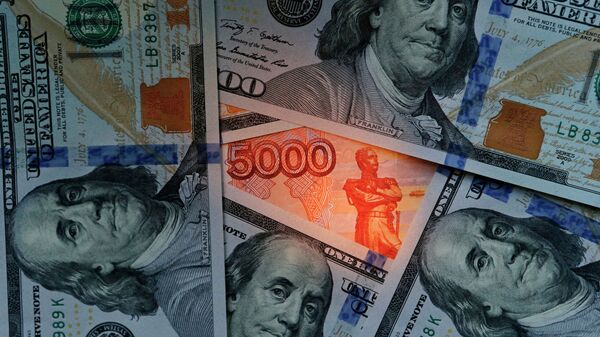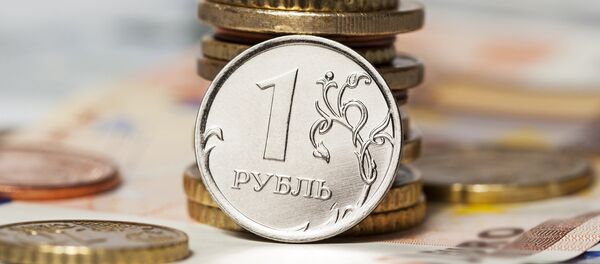The Russian ruble is rising through a combination of the beginning of the tax season on Saturday, higher oil prices and relatively high interest rates.
The growth is seen as both an opportunity for investors and a threat to Russia's budget and the Central Bank's reserves. Russian Prime Minister Dmitry Medvedev said on Tuesday said that the Central Bank may lower interest rates as a result of slowed down inflation.
"It's completely obvious that when big sums of money try to squeeze back into Russia through the bottleneck of ruble liquidity, narrowed by high interest rates, there is a deficit of rubles," Russian bank VTB24 investment department analyst Aleksey Mikheev wrote.
"The current speculative factor of the strengthening ruble lays in place risks of its quick weakening in the future, as the attractiveness of carry trade will become lower as a result of either the regulator's limiting measures, pressure on the ruble as a result of the fall in oil prices or through geopolitical factors," Bank Zenit analyst Vladimir Evstifeev wrote.
Capital analysts don't see the ruble permanently breaching the 50 ruble to the dollar mark as the Central Bank is set on maintaining the current rate through regulatory mechanisms.


